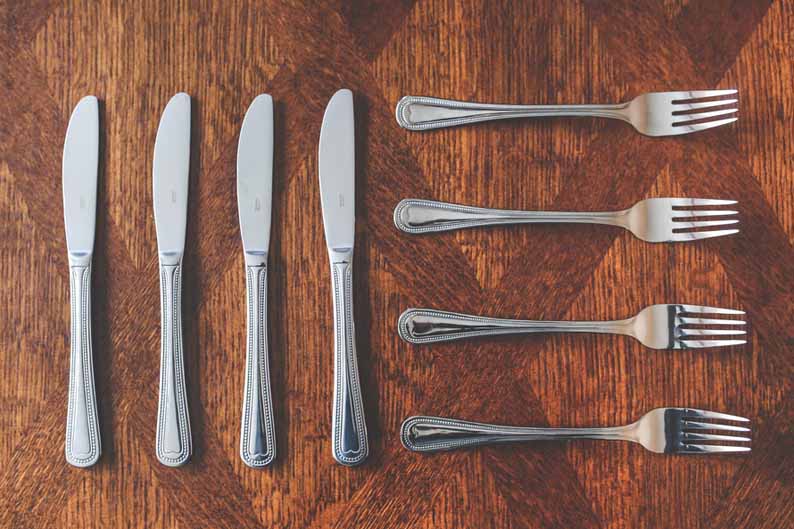To know how to declutter effectively, we must first learn how to analyse, separate and regroup our belongings. After this process, things almost seem to find their own perfect place in the home. Not convinced? Time to try it for yourself.
1. Analyse Every Single Item
Choose one area of your home to start decluttering. Don’t get overwhelmed, you don’t have to take on a whole room to begin with. Let’s say a set of 3 drawers in the kitchen-or even just one is enough if you’re feeling particularly shaky on the starting block.
Take absolutely everything out of this selected area. All of it. Look at each individual thing for what it really is. You’re probably thinking that this sounds a bit unnecessary, right? You know what everything is because you bought it/acquired it and put it here. However, it’s amazing how blind we become to items that have always just been there.
The brain tends to skip over the familiar: “Oh pay no attention to that grotty vegetable slicer, it’s slotted in that nook for the last 10 years so of course it must remain in its spot! No matter that we don’t love our veggies frittered into floppy discs, or that hand-washing the contraption is more hassle than throwing a knife in the dishwasher.” You get the gist. Now get rid.
Singling out and analysing every piece like this sparks the rewiring of other thought processes too. We become more observant and objective. You can use this technique going forward to quickly analyse every item that might potentially enter your home.
Retraining the mind can help avoid the accumulation of paper based clutter like catalogues & brochures, and prevent knee-jerk purchases. You might stop to consider whether the newest super tempting gadget in the store might really be a short-lived infatuation, rather than a lifetime love. A second of well practiced analysis can save years of wasted storage space in your home, and a lot of wasted money.
2. Separate Into Categories
Once you have completed the fundamental analysis stage and first purge of your selected area, give yourself a pat on the back! The biggest step to an effective declutter is just getting it started. But don’t go anywhere just yet, we’re not quite finished.
When you begin to let a few things go you will experience a feel good factor. Freeing yourself from the overwhelm makes you feel lighter, in charge of your environment, and capable of taking on the rest of the challenge. Let go of a bit more and the buzz kicks in. You will find yourself comfortably in the zone, where you will quickly build momentum and greater confidence in your decisions.
After the initial kickstart to decluterring. The items that are left over now need to be separated into categories. Break the leftover items into new cohesive piles, putting like with like. This way, you’ll be able to see at a glance if there are any multiples that could be pared down. Keep the best, bin the rest (best two if a spare is really necessary, and ‘bin’ others in a charity bag).
Also be sure to group items together that are used for a similar sort of task. Do you have one tool that could achieve the same outcome of several others? I can tell you that I don’t own a vegetable slicer, apple corer, pineapple wedger, or a ‘cake tester’ (yes it’s a thing), because just one good kitchen knife can do all of these jobs. It also won’t take up a whole drawer.
3. Regroup for Effective Home Organisation
This is the organisation process that has been started somewhat by putting like with like, but we need to go way beyond this. The regroup stage is when we reconsider how we use our space, and think about how it would serve us better. Don’t remain in a rut that no longer works for you or your family.
Think carefully about how you move around your space: What item do you always have to cross the room to get? Could it find a home nearer the action? To tackle effective home organisation in greater depth, read my article Mastering Home Organisation: 3 Steps to Creating Task Zones)
Once you begin placing your reduced amount of things in practical and permanently allocated areas (a place for everything and everything in it’s place) then organisation begins to happen at an increasing, and encouraging, speed. This is because you are making sense of your space, by letting it make sense for your life.
Read more… Simplify to Run Smoothly: Home Organisation




